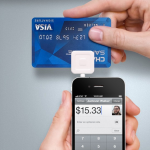March 13, 2014 at 7:04 am, by Carl
My online friend J.D. Roth recently posted a blog on getting your financial house in order. It drives straight to the point….if you want to save money, reduce your spending. Easy to say, apparently hard to do. Well, I KNOW its hard to do. My wife recently started nursing school and as a way to help out, I have taken over managing our finances. We have been working hard to reduce costs in many ways including eliminating cable TV and changing our phones to a VoIP type phone that is far cheaper than any of the big carriers. Still, it seems like we continually must be extremely viligant on every dime….often to the point of getting on each other’s nerves as we try to watch the money.
Well, here’s JD’s list. See what you think:
To begin, minimize your spending. Because a handful of expenses consume most of your budget, pursue these first (and with the greatest vigor).
- Choose a home in an area with a low cost of living. Reject the advice to “buy as much home as you can afford.” Buy as little as you need. Take out a small mortgage at a low interest rate. Repay it as quickly as possible. Don’t be afraid to rent.
- Reduce your use of motor vehicles. Walk, bike, or take the bus.
- Prefer used instead of new.
- If you can, do it and grow it yourself.
- Self-insure whenever possible.
- Spend purposefully.
- Avoid debt.
Part of the challenge today is that with so much purchasing being done electronically (as you probably know, you don’t even have to go to a bank anymore to make a deposit…it can all happen via your phone), people simply do not have a true understanding of how much money is going in and out. Think about this….if I give you $10, and that is all you have, then you have to think deeply (or you should) about whether to buy that $8 movie ticket or get some food to eat. What is really more important to you? Perhaps, you know you have food at home which you can get easily after the movie, so super. Or, perhaps you know you can’t go home for hours, so then eating becomes pretty important.
But, if you can make purchases simply with a small piece of plastic, whether you have the money in the bank or not, then it is a lot easier to see the movie AND grab some food. You don’t really think about “do I have this money to spend or not.” Later, when you needed that extra to keep the lights on or pay your rent or buy that textbook…..well, you don’t really think about the movie and lunch anymore.
I want you to Live Well. We certainly aren’t going to go back to a time before smartphones, and those people who want to have their way where we eliminate actual cash and just use technology will probably win out over time. So, in this realm of making smart financial choices, take the time to consider JD’s thoughts. My wife takes the bus to her nursing school classes on some days and I often ride my motorcycle or even my bicycle to work. You can too. But, here’s one more thing to add to JD’s list:
- manage your money closely–build the discipline to keep a tight check on your spending through some form of recording of ALL of your expenditures
Once I took back over the spending, I created two simple spreadsheets—one to be my actual check register and one to handle the budget plan. I won’t kid you–it takes time to manage the money. It is very easy to see why people just let the bank manage things overall; however this time invested will pay dividends as you know exactly where you money is.
Check out the rest of JD’s article for his other two keys to financial independence. You’ll enjoy his work.














Leave a Reply
Inappropriate or irrelevant comments will be removed at an admin's discretion.